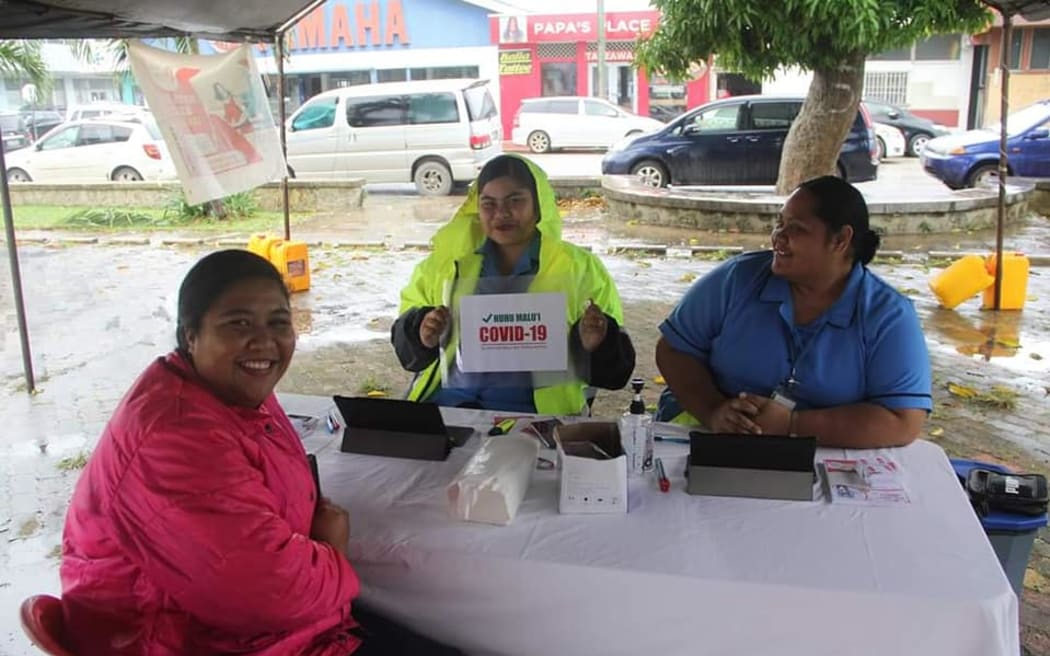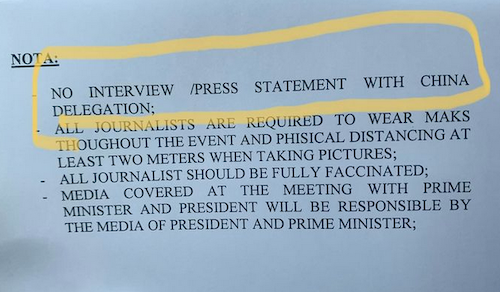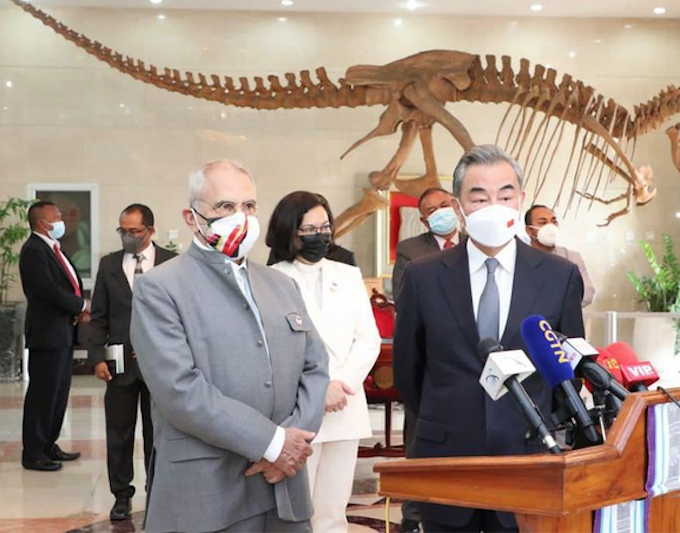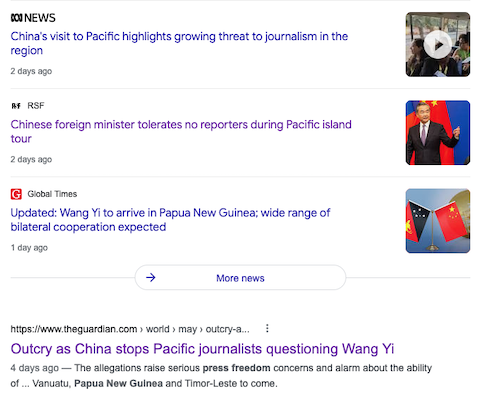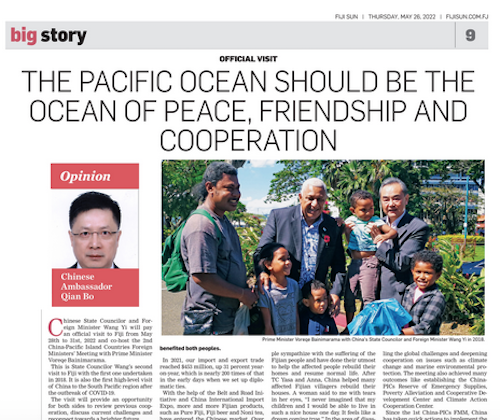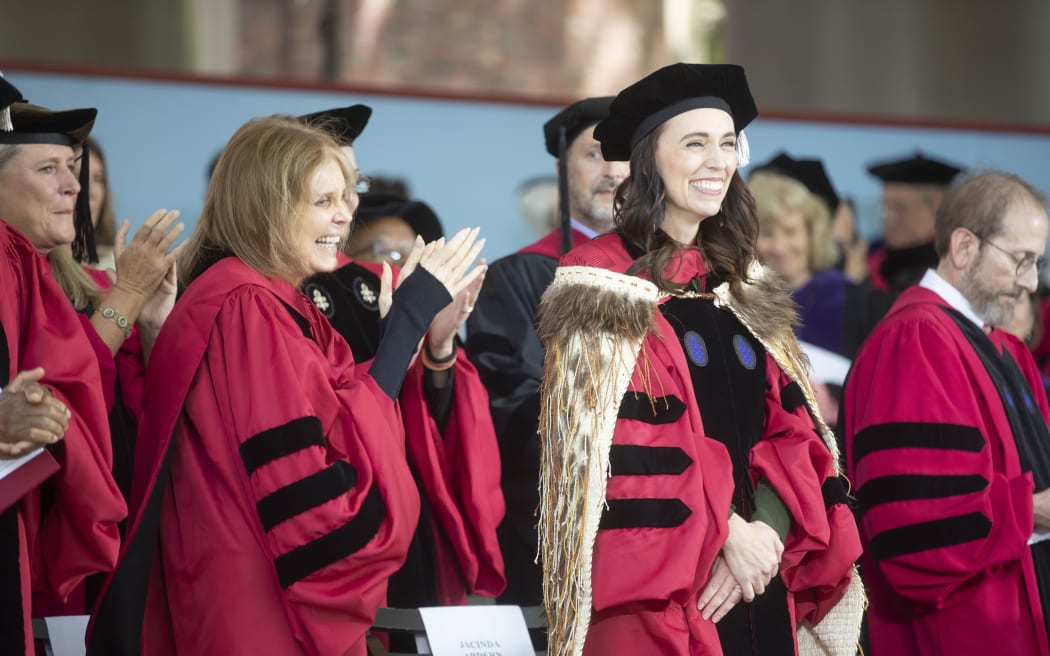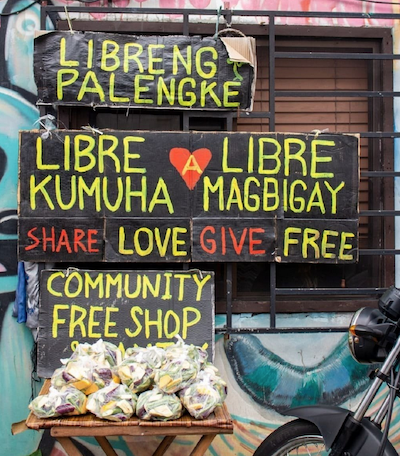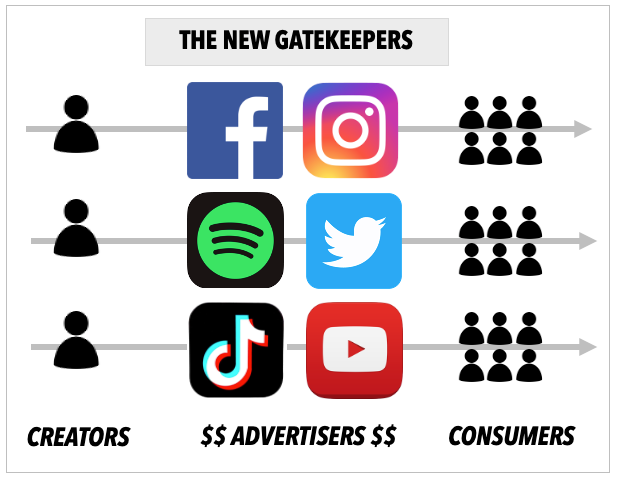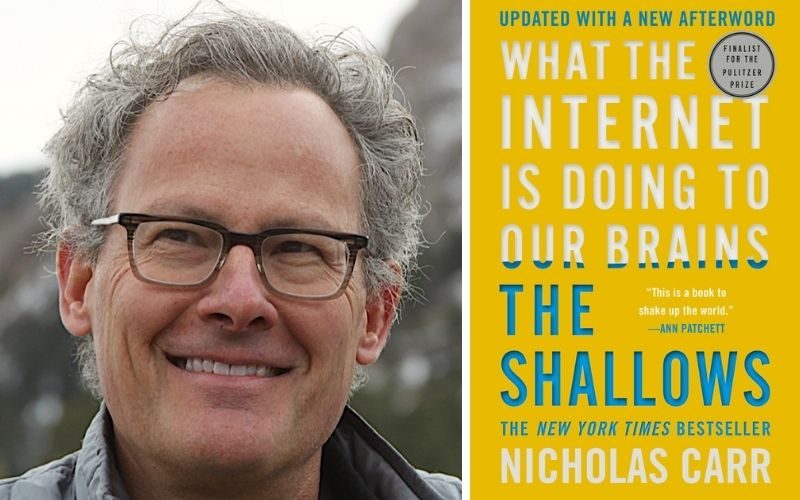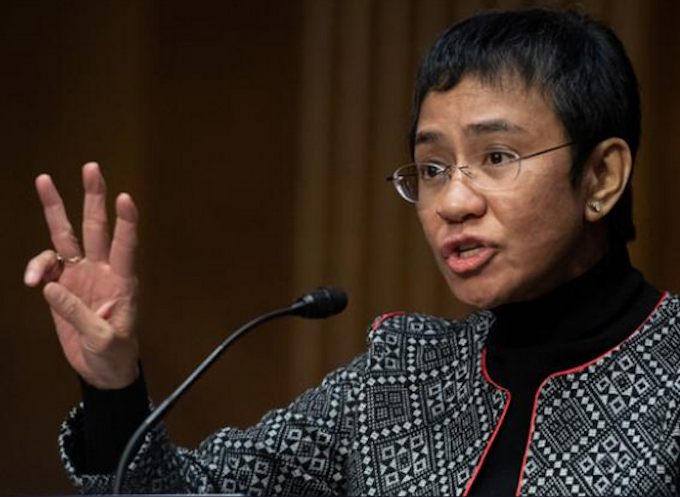Wooohoooo! BroadAgenda has obtained an exclusive interview with social media smash hit, The Man Who Has It All (MWHIA).
We’ve teamed up with social media expert Dr Catherine Archer – who has deep interest in women’s online engagement – to give us the low down on why “The Man” has a cult following and not only makes us laugh until our bellies ache, but turns the patriarchy on its head.
Who is MWHIA, you ask? Read on. We’ve got you covered. Grab some tissues in case you cry laughing. Don’t say you weren’t warned.
Catherine: The ‘Man Who Has It All’ is a self-described ‘busy working dad of three’ who apparently, ‘has it all’, including: kids, work outside the home, luminous skin, happy eyes, barely there legs, a simple but stylish home and voluminous cheeks. With more than half a million ‘friends’ (on Facebook, that is), including 12 of mine, 245k Twitter followers, a best-selling book and an online shop, this ‘dadpreneur’ appears to be winning at life.
By now, you may have guessed that the Man who Has it all (MWHIA) is a parody social media ‘persona’, that takes our/society’s impossible expectations for women in general – and mothers in particular – and handballs them across to men.
The Man’s identity is a closely guarded secret, but through his publicist, BroadAgenda editor Ginger Gorman managed to get some exclusive comments (in character) from him.
Ginger: Tell us a bit about yourself? For those who don’t know, who are you?
MWHIA: I’m bossing it as a busy working dad of three. I started a Twitter account called Man Who Has It All in 2015 to give men tips about how to have it all.
Ginger: You say you have it all. What exactly is “it all”?
MWHIA: When I say, “it all”, I mean kids, work outside the home, luminous skin, happy eyes, barely there legs, a simple but stylish home and voluminous cheeks.
Ginger: How do you stop your social media popularity going to your head?
MWHIA: I think it is so important that men are able to accept compliments about their work. I am proud of what I have achieved. With the right mentoring and tone of voice, men can actually succeed in business on their own merits, without playing the ‘man card’ to get ahead.
There is so much advice out there now for dadpreneurs, boy bosses and male leaders on how to dress for your body shape and how to communicate more like a woman to succeed at work. It’s up to men to embrace it and be their best version of themselves.
Catherine: I am not sure when I started following him on Twitter, (where he began offering ‘advice’ to men in 2015) or when I befriended him on Facebook, but like many women I found his posts incredibly funny because they took all those self-help adages aimed at women and just made them for men.
For those who have grown up pre-internet and read girls and women’s magazines like Dolly, Cleo, Cosmopolitan, Women’s Weekly, New Idea and Marie Claire, the advice from MWHIA seemed startlingly like the advice trotted out to women on a regular basis.
What is even more depressing for me, is that as an academic studying women’s use of social media (in particular, mum bloggers, now more likely to be called ‘mumfluencers’), I have seen similar impossible advice and beauty standards (for women, of course) infiltrate Instagram and other social media from many of the ‘mumpreneurs’ I have followed.
It is probably a no-brainer as to why MWHIA is so funny and popular but being an academic I do like to apply theories to these things (and besides, BA’s Ginger Gorman asked me to put an academic lens on him).
Ginger: How do you keep your skin and figure so nice?
MWHIA: I pared my skincare routine down during lockdown to just 18 products to create flawless skin that resembles glass. I get up at 6am and drink 2 litres of water with freshly squeezed lemon juice.
Next, I use a jade roller on my face before applying my sunscreen and serums. I follow the same diet as Prince William, after reading a feature called ‘What William Eats In A Day.”
I also do Hot Yoga and dancing to keep my core strong. Before bed, I always remove all traces of the day; dirt, excess oil, pollution and unwanted skin cells. I take pride in the way I look. So much so that my wife has actually never seen me with unwanted skin cells on my face!
Is it REALLY possible for men to juggle kids, housework, career, 2 or 3 almonds, water retention, healthy snacking, self-acceptance, perfect skin, a tiny waist and ‘me time’?
— manwhohasitall (@manwhohasitall) July 9, 2022
Catherine: Ten years ago, I started studying mum bloggers and at the time, amongst the fashion advice and blogs with titles like ‘the organised housewife’, there were also incredibly funny and painful stories, with the women often sharing the double standards of child rearing using humour and pathos.
I also noticed that mainstream media were particularly derisive of these women’s writing/’blogging’. When then PM Julia Gillard invited what were seen as the ‘influential’ mum bloggers, and other female writers, to a dinner at Rooty Hill RSL and morning tea at Kirribilli House, the reaction from mainstream media columnists was incredulous and sneering.
I started my research in 2012 and it was at the beginning of what was then termed the ‘blogging revolution’ when it was thought that ‘authentic posts’ from real women would change the world. But then, the advertisers/brands caught on that women were reading these posts and, and what with the ‘Instagram aesthetic’, the once raw posts of unfiltered motherhood of the early blogging days, gave way to aspirational #blessed #filtered #sponsored influencers selling us all the anxieties that would encourage women to spend big on what mattered – you know, diet products, skincare and Botox.
Of course, many of the early and later influencers have welcomed the attention of advertisers and have gone on to forge lucrative careers with their content, just as the MWHIA has done.
So why is MWHIA so appealing? He has done what many of the mum bloggers and other influencers have also achieved, using social media to profit but in his case also poke fun at society’s expectations of women.
Activists and artists have often used humour to highlight societal issues and hypocrisy, way back to court jester days, and the internet has been a great place to do this. Mum blogger themselves used to poke fun at their label and some embraced it while others felt it was cringeworthy.
To find out why MWHIA appeals so much, I did what all good academics do – I did some research, well actually I asked my female friends (real ones and those who are online ‘friends’ in an all-female closed Facebook group). Fortunately, as this is a news article, I didn’t have to take six weeks to apply for and be granted ethics approval.
The women’s response was quick….
It’s a witty, light-hearted flip on (what is often a shitty) reality. And the comments are GOLD!
I love it so much, as a solo mum most of my parenting it actually made me realise how I didn’t need to live through the double standard so much, clearly just up to me.
It gives me a good giggle, but it also reminds me that my anger at how myself and other women have been treated is absolutely justified. It’s one thing to *know* the double standards are there but when you’re reading his posts with the gender roles flipped it makes you realise just how absurd and deeply ingrained in us they are.
When you flip the standards imposed on women and apply them to men, it really highlights how gaslighty and ridiculous the messaging can be. There is also a lot of posts highlighting gendered language, gendered careers and subtle everyday sexism.
It makes me laugh, and points attention to double standards.
I love it. Cut through, accurate and very funny! I find it so reassuring given the constant tidal wave of double standards in media and public discourse.
I reckon it could be used in gender studies.
It resonates – and makes you stop, think, and challenge how deeply engrained some of those stereotypes really area. And yes, it’s hilarious.
It’s astounding how satire – seemingly so simple – can have such complex impacts. Let’s hear direct form MWHIA again:
Ginger: What’s the best way to get “me time” in your hectic schedule?
MWHIA: I get up five hours earlier than my wife and kids to give me time to chill in the kitchen, complete my gratitude journal and put my first load of washing on. I find it hard to relax until I have made the kids’ lunches, fed and walked the dog, put the slow cooker on and laid out the kids’ clothes for the month. Sometimes I have five minutes to think about how I can be kinder to myself and to others.
Ginger: How do you avoid being sexually harassed at work? What advice would you give?
MWHIA: There were posters in the men’s toilets in my last job telling us to walk home in pairs or groups to avoid being sexually harassed. We were also told not to wear short sleeves or tight fitting trousers. I think this is good advice.
After all, girls will be girls and if it’s served up to them on a plate, most women can’t resist. The vast majority of women, especially older women, unfortunately would harass an attractive young man if they knew they would get away with it. I’m really lucky, most women I have worked with have been really nice and haven’t so much as laid a finger on me. There are some good women left!
Ginger: When women are being opinionated and aggressive in work meetings – and cutting you off and talking over you, how do you manage this situation?
When this happens to me, I adjust my posture and lean in. Unfortunately, this doesn’t make any difference and they talk over me anyway. I think the reality is that women and men have different strengths.
Women are better at making decisions and chairing meetings and, like it or not, men are better at taking minutes, making drinks and taking the work tea towels home to wash at weekends.
Ginger: You might have seen in the newspapers that some men are sick of being a minority in Parliament and they want quotas. They say the current system – where mostly women are elected – is not based on merit, but sexism. How would you respond to that?
MWHIA: I don’t think men need quotas. I think men should get ahead by merit alone. Clearly the men currently in Parliament didn’t need a leg up to get there, so why should other men get special favours? Some men whine about structural inequalities, but I think these sort of men have too much time on their hands. Don’t they realise men in other countries have it worse?
Ginger: How is your pitch to The Guardian for books by men that women should read going? (Women can’t help it if they’ve never heard of any male authors!)
MWHIA: Unfortunately, I haven’t heard back from The Guardian. I just don’t think there is an appetite for male authors yet. Men’s Fiction remains a niche genre and you can’t expect everyone to be interested in such a narrow topic. Hopefully in another one hundred and fifty years we will start to see male authors being taken seriously.
Ginger: Is there any other advice or thoughts you’d like to share?
I’m encouraging everyone to comment on William’s parenting at the Jubilee Pageant in June if they haven’t already. Please wade in, especially if you didn’t see it.
Say hello to a happy healthy summer (editor’s note: it’s summer in the UK!) and don’t forget to smile!
Catherine: The marketisation of motherhood (and womanhood) in our neoliberal society and the ‘intensive mothering’ expectations placed on women, mean that sometimes closed Facebook groups can be one area where women remove the ‘mask of motherhood’ and share the humour, pain and frustrations where ‘having it all’ often means ‘doing it all’.
I have researched this phenomenon with other academic colleagues, and we found that women sought these perceived safe spaces for guidance, connection, community, humour and to ‘vent’.
The irony is that it takes a ‘man’ who has it all to shine a light on what female academics and feminists have been banging on about now for more than 50 years. In this case, it could be that mansplaining may be useful after all. It would be intriguing to know the real identity of MWHIA, but with this international man of mystery, ‘he’ gives us all a good laugh and also makes us think, and in these tumultuous times, that’s probably what we need right now.
Finally, Ginger asked MWHIA what advice he would give to working women.
His response was: “I think women have it easy to be honest. My wife gets home from work to a tidy house, gorgeous husband and happy kids. I’m lucky that she helps out. She’s very much a hands-on mum, especially now they’re a bit older. She takes them to the park on a Saturday morning for an hour so I can clean the house in peace. My advice to women would be to treasure and protect us; we are wonderful, mysterious creatures!”
- Feature image: ‘The Man Who Has It All’. Picture: Supplied
The post Exclusive: “Man Who Has It All” bares all appeared first on BroadAgenda.
This post was originally published on BroadAgenda.
